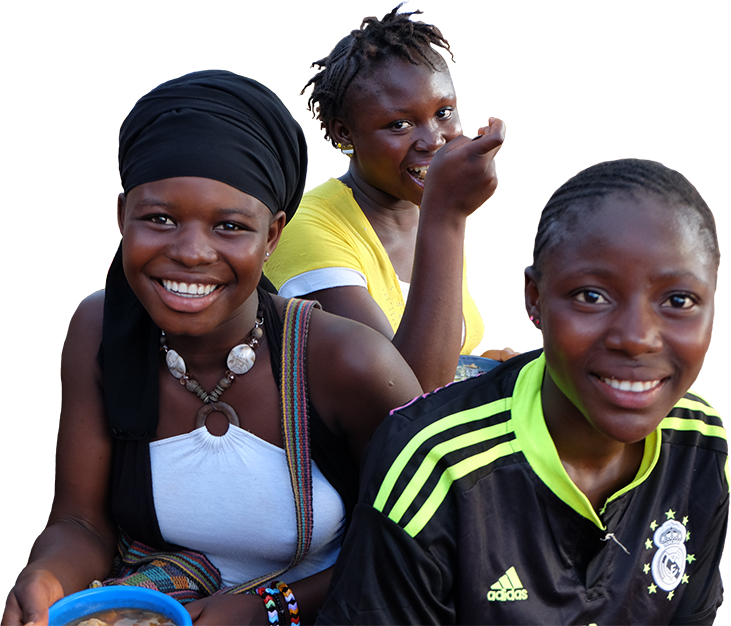Improving adolescent nutrition depends heavily on behaviors such as diet and eating practices, exercise, lifestyle, and use of health services. Social and behavior change (SBC) strategies must consider how unique structural and environmental factors that affect adolescents’ access to services and adoption of priority behaviors. Formative research, concept testing, and pre-testing of materials and approaches are needed to identify barriers and enablers to behavior change and to better understand how adolescents engage with family members, friends, teachers, health care providers, religious leaders, other community members, mass media, and social media. The Adolescent Nutrition Resource Bank includes posters, videos, counseling cards, and other SBC materials. If you have relevant SBC resources, please send them to info@advancingnutrition.org.
We found 111 resource(s)
How to Be Good at Football: Why Small Things Are Important: A Story about Micronutrients
Information, Education and Communication Materials published by Children for Health in
This is a storybook from the Children’s Participation in Action and Learning for Nutrition (PCAANS) project in Mozambique. The book aims to teach children about the importance of nutrition, in particular micronutrients, in being healthy and strong.
Como Ser Bom Jogador de Futebol: Por Que Coisas Pequenas São Importantes: Uma História sobre Micronutrientes
Information, Education and Communication Materials published by Children for Health in
This is a Portuguese-language storybook from the Children’s Participation in Action and Learning for Nutrition (PCAANS) project in Mozambique. The book aims to teach children about the importance of nutrition, in particular micronutrients, in being healthy and strong.
Review of Programmatic Experiences to Adolescent and Women's Nutritional Needs in Low and Middle Income Countries
Technical Report published by SPRING in
This report reviews the approaches used, practices promoted, and lessons learned by projects designed to improve the nutrition of adolescent girls and WRA in LMICs. It provides information on global programmatic experiences and summarizes inputs, outcomes, and lessons learned from implementers carrying out nutrition programs for WRA. Policy and…
Health and Life Skills Curriculum - Kibera (Nutrition section, pg 84)
Training Material published by Population Council in
This curriculum, developed in Zambia and adapted for the Kenyan context, aims to provide health education (reproductive health, nutrition, life skills) in weekly "safe space" groups, led by a mentor. The curriculum includes instructions for group facilitators and interactive lesson plans and activities on key topics related to adolescent…
How to Integrate Children's Participation in Health and Nutrition Programming
Guideline/Guidance published by Save the Children in
This guide was developed to enable Save the Children’s health and nutrition staff and partners to better support the meaningful participation of children and young people in health and nutrition programs. It focuses on opportunities for children’s involvement in maternal, newborn, and child health and nutrition, especially at the community and…
Guineau-Bissau PLANO ESTRATÉGICO DE NUTRIÇÃO 2015-2019
Policy published by Ministeria de Saude Publica, Republica de Guine-Bissau in
This document is the Guineau-Bissau overarching nutrition strategy. The strategy promotes optimal nutrition for children from 6 months to 19 years of age, and advocates for good nutrition practices for children, young people, and adolescents at schools, health centers, and women's literacy centers.
Core Competencies in Adolescent Health and Development in Primary Care Providers
Guideline/Guidance published by WHO in
This document guides countries in developing competency-based educational programs in adolescent health and development for pre-service and in-service education. The ultimate goal of the competency framework is to increase the quality of health-care services provided to adolescents by improving the education of primary health care providers.
Rupantaran Nutrition Module
Training Material published by MoWCSW, MoYS, United Nations Population Fund (UNFPA) in
This package of 15 modules aims to empower adolescent girls in 19 districts in Nepal through sessions conducted by social mobilizers and facilitators. One of the modules addresses nutrition. The package focuses on helping adolescent girls to expand their networks and capacitating them to be change agents in their community.



